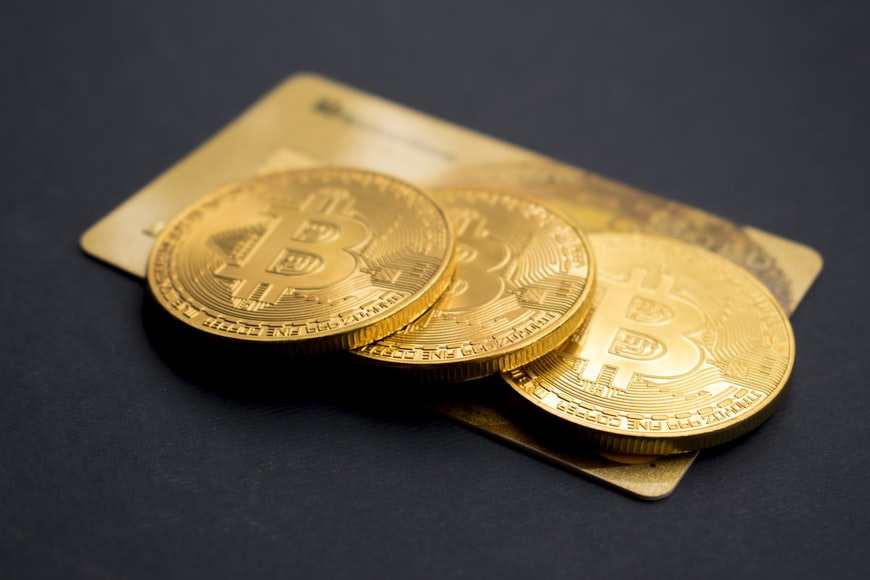The banks' attempts to eliminate cryptocurrency have failed, and now they are slowly accepting it
Author: Emily Flitter, The New York Times
Translator: boxi, 36Kr Translation Bureau
Editor’s Note: "If you can't beat them, join them." This phrase is absolutely fitting for the traditional banking industry's attitude towards cryptocurrencies. Once upon a time, the U.S. banking sector scoffed at cryptocurrencies led by Bitcoin, then attempted to stifle this parallel financial system as the momentum for cryptocurrencies grew, but after this attempt failed, they were forced to slowly accept and join the game. However, under the constraints of traditional thinking and conflicting interests, their efforts feel somewhat like trying to paint a tiger but ending up with a dog. The article is from translation.
Image Source: Unsplash
Key Points:
At first, Wall Street scoffed at Bitcoin
The banking industry's initial skepticism about digital currencies cost them time
The banking industry is taking a dual approach: experimenting with cryptocurrency products while lobbying regulators to create rules favorable to banks
In 2014, as New York regulators were exploring ways to control Bitcoin, executives at the largest banks on Wall Street were worried that regulating cryptocurrencies would also lead to their legitimization—potentially threatening the financial industry. So they tried to sow seeds of doubt.
That year, at the World Economic Forum in Davos, Jamie Dimon, CEO of JPMorgan Chase, called Bitcoin a "terrible" store of value because it was also used for illegal purposes. At a meeting, veteran financial lawyer H. Rodgin Cohen warned state regulators that the federal government was "very concerned" about Bitcoin and its use.
But those efforts failed. In 2015, the New York Department of Financial Services began issuing licenses for Bitcoin businesses. Now, there are over 75 million Bitcoin users, compared to about 3 million seven years ago, and the number of digital currencies has exploded. According to a report from Crypto.com in July this year, 220 million people worldwide are using cryptocurrencies.
Bain & Company advises financial firms on cryptocurrency and other digital asset matters. Partner Thomas Olsen said, "Most people agree that in the future—maybe in 10, 20 years, or even sooner—all assets will be in digital form."
Now the banking industry is rushing to catch up. Banks want to compete in this new world and profit from it. Their approach is twofold: experimenting with cryptocurrency products while lobbying regulators to create rules favorable to banks. Some banks have begun offering cryptocurrency investments to wealthy clients. Others are seriously considering establishing Bitcoin trading platforms. In 2019, JPMorgan launched its own digital currency. Now, representatives of the banking industry no longer warn regulators to stay away from cryptocurrencies; instead, they are beginning to complain that regulators are not acting quickly enough, and their inaction is wasting precious time for banks to compete.
However, their initial skepticism about digital currencies has cost them time. A parallel financial world is emerging alongside traditional banking. Cryptocurrency startups are beginning to offer credit cards and loans. People and businesses around the world are rapidly embracing digital currencies. Even governments are getting involved. El Salvador recently announced it would accept Bitcoin as legal tender. The Federal Reserve is also following the lead of central banks around the world and is assessing the launch of its own digital currency.
For centuries, the traditional banking system has dominated. For a long time, banks helped governments control the flow of money in local economies by absorbing deposits and then lending part of those funds to other clients. Later, with the rise of the secondary loan market, banks were able to issue more loans by selling loans to investors after issuing them, freeing up balance sheet space for more lending. Banks could profit from every step of this process.
In 1999, the U.S. Congress further relaxed regulations, allowing commercial banks to compete on Wall Street, which led to a resurgence of banking power. From oil and wheat to government bonds, banks can now market almost anything, helping to sell and purchase various assets, even as they assist ordinary Americans in managing payments and collections, buying homes, and starting businesses.
Digital currencies threaten the central role that banks play by allowing individuals to connect directly with others for remittances, sales, and business collections without intermediaries.
On the surface, executives at America's largest banks show little enthusiasm for digital currencies. Dimon continues to be skeptical, stating in 2017 that Bitcoin is a "fraud." Recently, he reiterated that Bitcoin is "worthless." Three years ago, Bank of America CEO Brian Moynihan prohibited the bank's wealth management division from investing any client funds in cryptocurrency-related investments.
However, some individual bankers are starting to become curious about Bitcoin. According to a knowledgeable source who requested anonymity, after privately mocking Bitcoin for years, Bank of America COO Thomas Montag asked a friend for tutorials on cryptocurrency and spent hours attending lectures, reading relevant books, and meeting with executives in the cryptocurrency business.
Last year, the number of patent applications submitted by engineers at Bank of America reached an all-time high for the bank, including hundreds of applications related to digital payment technologies. It is unclear how the bank plans to use its technology, but part of the motivation is to keep customers within the banking system rather than losing them to ambitious cryptocurrency startups.
Bank of America's spokesperson Mark Pipitone said, "The bank has seen the potential of blockchain, and we are currently the leading patent holder in this field, with over 160 patents. However, we have not yet found large-scale use cases that can improve customers' financial lives."
Other large banks are more open to direct engagement with cryptocurrencies. Bank of New York Mellon and Northern Trust are working to provide custody services for clients holding Bitcoin (primarily accounts from other banks). Bank of America has also announced it will offer cryptocurrency custody services to fund managers.
In 2019, a JPMorgan division called Onyx launched JPM Coin, a digital currency backed by the U.S. dollar. The platform for this digital currency is Quorum, an internal technology that mimics blockchain structure. However, Quorum is controlled by the bank, unlike Bitcoin's decentralized blockchain. JPMorgan has recently spun off Quorum into a software startup.
JPMorgan has also launched a fully digital system simulating the traditional "overnight repo" market (which exchanges short-term U.S. government bonds for cash). In the past, these transactions took more than a day to complete—hence the "overnight" label—but JPMorgan's platform can complete them in just 15 minutes. So far, this market has only three users, two of which are JPMorgan's own entities. Goldman Sachs became the first external participant this year. If more banks join, JPMorgan could ultimately control one of the world's most important short-term financing markets.
Cryptocurrency expert Igor Pejic stated that JPMorgan is one of the few large banks that have experimented with blockchain (the underlying technology for digital currency transactions), making them pioneers in digitization and positioning them to profit from the systems they are currently testing, as "they are building an infrastructure ultimately controlled by them."
A knowledgeable source who was not authorized to speak publicly indicated that shortly after JPM Coin was launched, regulators began calling. They were concerned that the flow of these digital currencies within the financial system could increase risks, as they are pegged to the dollar, potentially causing panic and leading to a 21st-century bank run. The bank was later forced to narrow the scope of JPM Coin's use.
Now, JPM Coin cannot be used for value transfers outside of JPMorgan's internal systems. The bank's own customers can use it to convert between dollars and other assets within the bank, and it's almost instantaneous, but in the broader outside world, it is meaningless.
Regulators have also turned their attention to small banks attempting to establish cryptocurrency businesses. In 2018, Quontic Bank, with assets of only $1 billion, planned to launch a debit card program that would reward customers in Bitcoin and sought advice from the U.S. Office of the Comptroller of the Currency (OCC).
Steven Schnall, CEO of Quontic, hoped to provide customers with returns that could appreciate like Bitcoin.
Schnall said he was surprised by the intense questioning from regulators directed at him and other executives. OCC lawyers envisioned an almost endless list of questions. What if Quontic customers lost their Bitcoin? What if the bank account holding them was a trust rather than personally owned? The review took two years, but in the end, there was still no clear approval.
Schnall said, "They are essentially forcing us to go through the process to ensure they can identify all the risks clearly." Quontic decided to proceed with its plan. The company chose to rely on external firms to handle all matters related to Bitcoin, so Quontic would not have to "touch" cryptocurrencies.
Regulators were caught off guard by the rapid proliferation of cryptocurrencies and are now rushing to establish new rules governing their use. Banks see a new opportunity in this and are trying to lobby regulators to create rules favorable to them. Bank lobbyists are working hard to persuade regulators to establish uniform rules for lenders focused on cryptocurrencies and other companies providing transfer and similar banking services, arguing that unless these companies are subjected to the same regulatory measures as banks, these new enterprises will enjoy an unfair advantage.
U.S. banks are also opposed to the Federal Reserve exploring its own digital currency. As representatives of the largest banks in the U.S., the American Bankers Association warned members of the House Financial Services Committee this summer that the negative consequences of establishing a central bank digital currency "could be severe." The association stated that there does not seem to be an urgent need at present, as "the current dollar is essentially already digital."
Cohen, a senior partner at Sullivan & Cromwell, has long warned New York regulators against Bitcoin and is one of the proponents of increased regulation.
Cohen stated in an interview with Bloomberg Television last month, "We need regulatory measures for cryptocurrencies." He said that creating new rules would be "very difficult, but difficulty should not be an excuse; it should be a motivation."




























